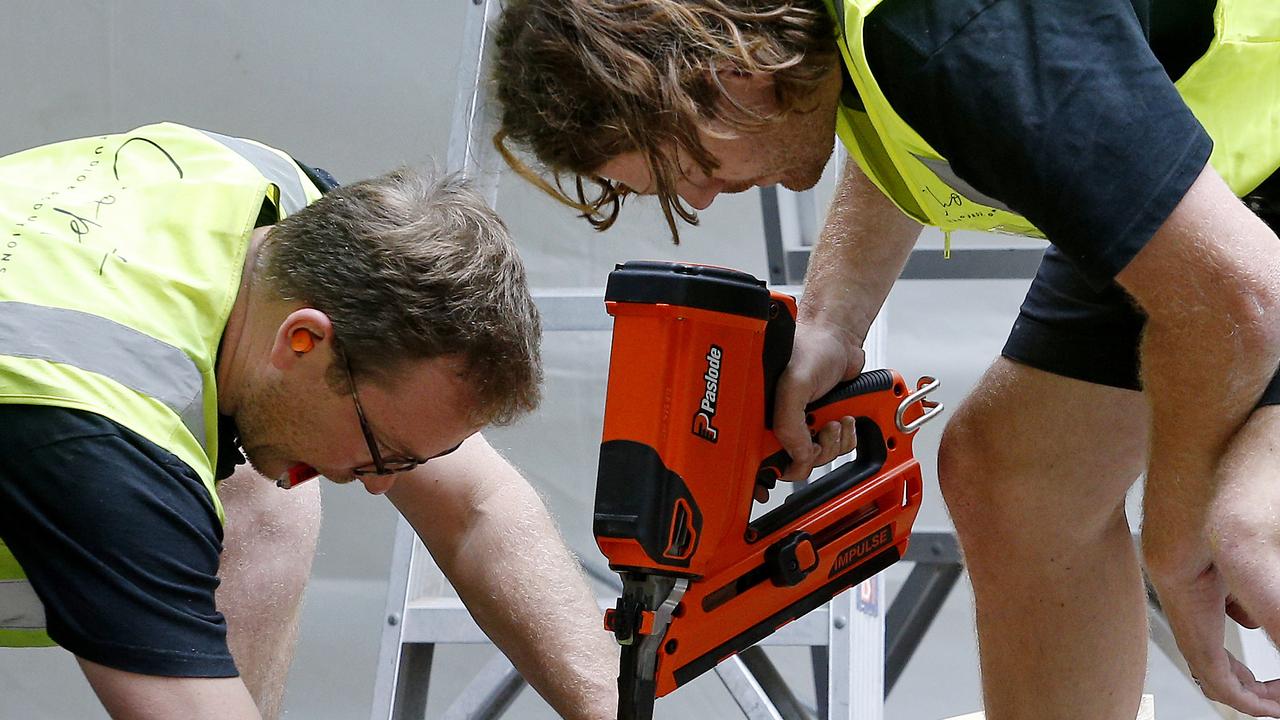‘Out of sight’: Aussie bosses using new tactic to end working from home
If we needed anymore proof that a war is being waged against working from home, a new tactic being used to get staff into the office has been uncovered.

Careers
Don't miss out on the headlines from Careers. Followed categories will be added to My News.
Australian bosses are employing a new tactic to get staff to cut down on working from home, and it’s got nothing to do with return to office mandates.
Anyone who has been working in an office setting since the Covid lockdown era will have seen just how much flexible working policies have changed over the past few years.
Prior to the pandemic, five days in the office was the norm, then lockdowns obviously meant that many businesses made the decision to go fully remote.
As those restrictions lifted, many businesses moved to a hybrid working model and now, an increasing number of companies are wanting staff back in the office full time.
Over the past few months, we have seen a series of major companies introducing return to office mandates, sparking backlash from workers who have become accustomed to the flexibility and better work-life balance that hybrid and remote work allows.
Now, new research from recruitment firm Robert Half has found a whopping 74 per cent of Australian employers agree workers’ office attendance “significantly” impacts their likelihood of promotion.

MORE: How to negotiate working from home
The findings come from a study conducted by an independent research company in November 2024 of 500 hiring managers and 1000 full-time office workers.
Workers have been rallying against the increasing number of in-office mandates, however, this new research shows Aussie bosses aren’t messing around when it comes to winding back working from home arrangements.
And Australian employers aren’t alone in how much weight they place on physically being in the office, with Robert Half research showing the majority of employers surveyed in the UK, Germany, the Netherlands and France agree that being in the office can influence promotional opportunities.
Director at Robert Half, Andrew Brushfield, said the results show that people seeking continued remote work may face career progression challenges, noting the “out of sight, out of mind” effect is very real.
“Business leaders are emphasising the value of returning to the office predominantly for workforce collaboration and team cohesion,” he told news.com.au.
“Many companies favour in-person communication for the jobs held by their workforce and believe physical presence in the office enhances visibility for career advancement.”
The research also revealed that employees are prepared to increase their in-office attendance rather than run the risk of being overlooked for a promotion.
If their employer outlined it as a requirement or expectation for a higher role, almost half – 45 per cent – of employees say they would increase their time in the office.

However, there was still a significant amount of workers who said even the threat of being held back wouldn’t get them to relinquish remote work, with 17 per cent saying they would choose working from home over a promotion.
A further 18 per cent said they would even look for a new job with less rigid in-office requirements.
These results make it very clear that the return-to-office push isn’t going away anytime soon but, despite this, Mr Brushfield still believes workplace flexibility is here to stay.
“For some organisations, we have seen this evolve into flexible work hours (referring to when employees work) but many others are retaining their work from home policies (albeit one or two days a week) as an attraction method for new talent,” he said.
“In this context, I don’t think we will be seeing a return to pre-pandemic office attendance any time soon.”
And not every Aussie boss is jumping on the anti-WFH train.
Daniel Mikus, CEO MR Roads, a leading provider in the road construction and asphalt services industry, doesn’t believe offence attendance should be directly linked to advancement opportunities.

“We operate MR-Roads as a meritocracy – every team member is evaluated based on their output and impact, not on how many hours they spend at their desk or how visible they are in the office,” he told news.com.au.
“Advancement comes from results, leadership, innovation, and reliability – qualities that can be demonstrated from anywhere, not just within four walls.”
The CEO said management staff are encouraged to work from home a few days a week if they believe it enables them to preform at their best.
In Mr Mikus’ view, flexibility is a tool, not a perk, and is one that can empower staff to manage their time, energy and work more effectively.
“We’ve found that trusted and happy employees will always outperform those who are micromanaged or made to ‘clock in and out’ simply for appearances,” he said.
For those early in their career, Mr Mikus believes there is value in spending time around more experienced team members.
However, this doesn’t mean that full-time office attendance is the only way to achieve this collaboration and learning.
“Structured mentorship, regular check-ins, and intentional knowledge-sharing – whether in person or online – can be just as effective when implemented thoughtfully,” he said.
“The goal should be to equip young professionals with the tools and support they need, not to constrain them with outdated models of presence.
“Ultimately, we believe leadership is about outcomes, not optics. At MR-Roads, we trust our people to deliver, wherever they are – and that trust pays dividends in performance, culture, and loyalty.”
Originally published as ‘Out of sight’: Aussie bosses using new tactic to end working from home





